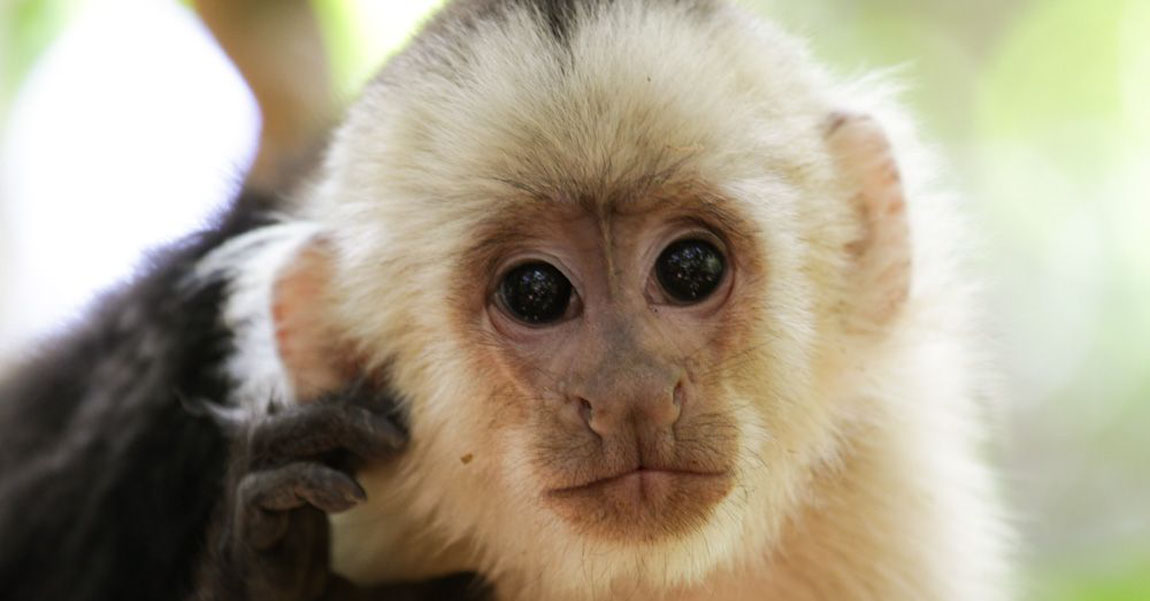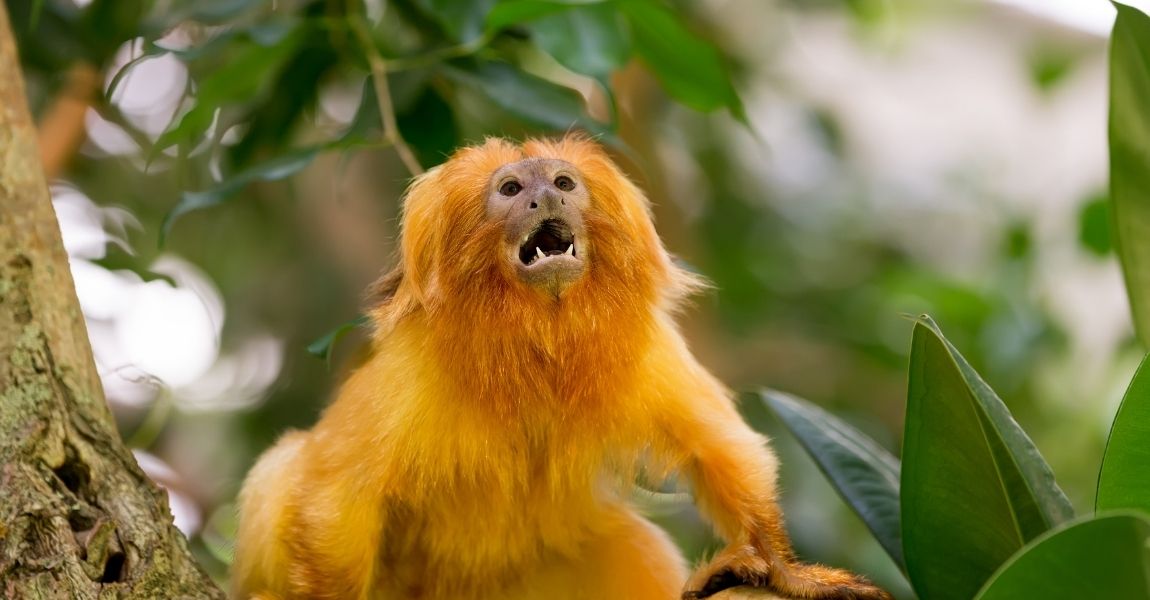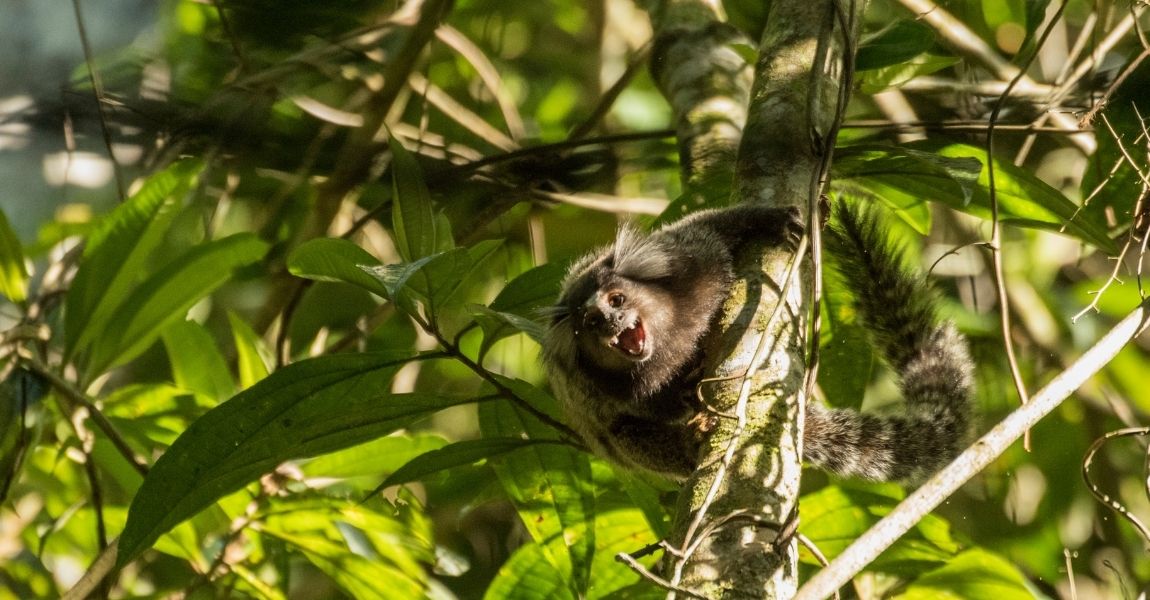Owning a capuchin is a lifelong serious commitment. Wild capuchins generally live 20-25 years but the lifespan of a capuchin monkey in captivity may be somewhat longer provided their nutrition and general health care is optimal. There are reports of Capuchin monkeys reaching around 40 years in captivity.
As with all monkeys, capuchins need a lot of attention, stimulation and will take a lot of your time and patience. It is important to weigh your capuchin accurately (3-4 times a year) in order to monitor weight changes over time.
It is not easy to weigh any monkey as they do not volunteer to sit still on a scale. Therefore, they need to be weighed inside an enclosure and their weight calculated by subtracting the individual weight of the enclosure from their combined weight. The average weight of adult capuchins in captivity may vary around 3-4 kg for females and somewhat heavier for males. In nature, wild capuchins usually weigh slightly less than their captive counterparts.
There are also some species differences. Remember that these are average ranges for adult capuchins and exceptions do occur on both the higher and lower ends of the scale. Absolute weight of your monkey is less important than body condition score. The body score roughly describes the monkey as emaciated, thin, normal and well-muscled, obese or grossly obese. A lean well-muscled body score is ideal.
Wild free roaming capuchins enjoy an omnivorous diet, meaning they eat a balanced diet consisting of complex carbohydrates, simple carbohydrates, proteins, fats and oils. Such a well-balanced diet they achieve by eating a wide variety of plant material, roots, fruits, nuts, berries, seeds, small birds, insects and eggs. Nature also helps in this respect as not the same foods are available right through the year.
Nature also guards against excess calorie intake as food is generally spread out, takes energy to find and also is usually less calorie dense than food fed to captive capuchins. Capuchins have to work hard each day foraging and hunting for their food. So while doing this, they burn a significant amount of calories keeping them well-muscled yet slim and healthy. In captivity it is not possible to mimic their natural diet and level of activity.
Very many Capuchins are obese despite the owner’s very best efforts to keep their weights down. This occurs because they are fed foods that are calorie dense and simply, through ignorance, are fed too much. Capuchin monkeys often fill an owners psychological need to care for a dependent, resulting in overfeeding. Many capuchin monkeys are obese because of excess intake of milk and calorie rich drinks. The following scenario all too often presents itself. Assuming an overweight 8-month old capuchin monkey weighs 3.4 kg (ideal weight = 2.8 kg) drinks 3 bottles of 150 ml per day in addition to its normal diet. This means the monkey consumes 450 ml of milk per day which represents an intake of 450/3400 = 13.2% of its bodyweight. This is the equivalent of a human adult that weighs 80kg, drinking 80 x 13.25% = 10.5 litre of milk daily.
For the Capuchin this is detrimental in many ways. This milk contains an enormous amount of calories which together with its other food exceeds its requirements contributing to obesity and or diabetes. It also represents excessive fluid intake. The monkey will just not have an appetite to eat the less tasty yet healthy foodstuff (vegetables) in their diet. The excess milk intake together with the low fibre intake leads to a very pasty watery stool consistency of the stool and contributes to nappy rash for those wearing diapers.
Most menacing of all, this incorrect feeding leads to obesity and or predisposes capuchin monkeys to type 2 diabetes. Although there are suspected to be differences in susceptibility to diabetes, both the intake of high sugar/carbohydrate food (including milk) and excessive food intake (even if considered healthy food) should be considered the main contributor to diabetes in monkeys. However, it is also important to note that not all diabetic monkeys are overweight.
In summary, captive capuchins are prone to consume too many calories and burn too little. An overweight capuchin is the direct result from the ignorant owner giving it uncontrolled access to too many calories or unintentionally, overfeeding it.
Weaning
In nature, the word “weaning” means the gradual transitioning from an all-milk diet (mothers milk) to an all-solids diet. The topic of the weaning process needs to be discussed in detail as there are many misunderstandings regarding the weaning process in captivity. The weaning process in the free roaming “wild” capuchin is discussed separately from its captive counterpart.Weaning in nature is a gradual process and starts at the early age of 3-4 months and is usually complete at around 6 months of age, depending on availability of food. Even if the wild monkey is not weaned at 6 months, it will only partially depend on its mother’s milk to supply it with all its calories.
This extended period of weaning serves a purpose in nature. It bonds the young monkey to its mother to extend the learning process of what to eat how to find it and keep safe from dangers. The opportunity to suckle from its mother, provides the little monkey with calories in times of food scarcity. In captivity the owner should endeavour to wean the capuchin monkey by six months of age. From about 6 weeks solids may be introduced and the monkey is slowly weaned of milk so that it is weaned by 5-6 months.
Some capuchin owners insist to bottle feed and may want to replace the milk with another drink such as fruit juice or other drinks. If fruit juices are offered it should not exceed 1% of their body weight per day. Water is the healthiest option. Monkeys should have free access to water at all times.
Reproduction and behaviour
Puberty occurs around 5 years of age in both sexes and the female capuchin remains in oestrus for about 4-8 days. Pregnancy lasts around 5 months and she may produce a young every alternate year. There may be an increase in aggression at the time of puberty but it remains unclear whether this is related to puberty or just increase in age. Whether to sterilize your monkey or not is a controversial topic.Some feel monkeys should not be altered in any way and left in their natural state, while others feel spaying and neutering is in the best interest of the monkey when they do not intend to breed. It is also unclear whether spaying or neutering a monkey helps with aggression. However, many caretakers of monkeys feel that it does help with aggressive behaviour.
Disarmament of a monkey by removing its canine teeth is also controversial. Whilst most are in agreement that monkeys belong in trees in nature, when in captivity already, there is no way back. Aggressive interactions may lead to serious wounds inflicted on monkey owners.
Aggressive behaviour may also lead owners to cage monkeys permanently, effectively reducing the monkey to leading a very ornamental boring life style. Therefore, many monkey owners opt to disarm their monkey by extracting the canine teeth. Not all veterinarians are comfortable with the surgical procedure and some are not in favour of performing the procedure.
It is also advised that all other avenues of behavioural modification have been explored before deciding to disarm a monkey. Capuchins will have their baby teeth (deciduous teeth) by 4 months and will have their permanent teeth by around 3 years of age.
Dietary management of healthy pet capuchins: General Rules
Offer large variety in the dietDo not feed foods high in simple starches (e.g. White breads, pastas, potatoes, white rice, pastries, cereals, cookies) If some simple starches are fed use Basmati and brown rice only and in very small quantities
Do not feed foods high in sugar (sugars such as fructose -fruit sugar, sucrose -table sugar, and lactose -milk sugar. Fruit juices are not innocent in large volumes exceeding 20 ml/day)
Do not feed foods high in fat
Feed lots of vegetables, unprocessed grains and legumes
Feed very small amounts of fruit only
Feed lots of foods high in protein
Feed foods high in fibre
Don’t over-feed your monkey – capuchins are very small in comparison to humans, so it is very easy to overestimate the amount of food they should eat. In captivity they tend to eat more than what they should especially if they are underactive and bored. Putting a weight or volume to the exact amount they should eat is not possible as the volume and weight of the different foodstuffs are vastly different. As a very basic rule the volume of food that the capuchin consumes, should not exceed the volume of its head per day. Treats should not exceed the size of a grape. Only feed them two to three times a day. If food is left over they must first finish before getting another meal as they tend to get very picky.
Keep track of how much your monkey eats so that you can change it depending on the condition score
Feed vegetables raw preferably raw or slightly steamed
Capuchins have an absolute need for vitamin C – which means they need vitamin C in their diet. A balanced healthy diet provides all the vitamin C the monkey requires but despite this, it is a good idea to supplement your capuchin’s diet using a good paediatric multivitamin supplement at the dosage on the package for a very small infant. Two to three times a week is normally sufficient.
Examples of good foods to feed
Vegetables
Vegetables should preferably be fed raw or slightly steamed. No sugar, salt spices or fat should be added.Examples of healthy commonly available vegetables are; cabbage, cauliflower, kale, broccoli, spinach, celery, beetroot, baby marrow, cucumber, mushrooms, beans (raw not tinned version), lettuce, peppers, asparagus, bean sprouts, peas, olives, pumpkin, squash, butternut, sweet potato, radish, brussel sprouts, tomato, maize, carrot, eggplant, rocket, watercress, herbs.
Less commonly available healthy options are, alfalfa, bamboo shoots, fennel, artichoke.
Feed these vegetables sparingly: Carrots, beetroot as they have high sugar contents
Fruit
Don’t feed canned fruit, also feed fruits sparingly. Capuchins don’t need to have fruits everyday like some other species.Apple (granny smith best), pawpaw, melon, spanspek, nartjie, orange, mango, pear, grapes, dates, banana, peach, apricot, kiwi, mango, strawberries, raspberries, cherries, blueberries, mulberries, raisins, persimmons, pomegranate and others.
Coconut and avocado (can be fed more often).
Proteins
Egg (raw, boiled, scrambled or omelettes), cold meats, biltong, cheese, cottage cheese, chicken, fish, seafood, turkey, red meat (in small amounts), tofu, yoghurt, hummus, lentils, beans chickpeas and insects (grass hoppers, crickets, mealworms).Seeds and nuts – pumpkin seeds, sunflower seeds, sesame seeds, chia seed, flax seed, peanuts, and all sorts of nuts
Treats Unsweetened herbal teas and sugarless jelly, water of boiled up vegetables (no salt, no spices)
Baby cereals, bottled baby foods, more than one portion of fruit (strawberry size) carrots, beetroot, bread, cakes, sweetcorn, rice, sweet potato, pasta, couscous, potato, rusks, rice cakes, dried fruit, canned fruits, fruit rolls, chocolate, sweets, pudding, crisps, cakes, honey, syrup, sugared breakfast cereals, biscuits, fizzy drinks, ice cream, condensed milk.
Remember the key to a healthy monkey is a balanced varied diet, the more you experiment and encourage your monkey to eat different types of healthy foods, the better.
Allergies and intolerances
Although it is true that some individuals within a species of monkey (including capuchin monkeys) may suffer from allergies and intolerances (gluten and lactose and others), this should be considered very rare. Many monkeys suffer from chronic diarrhoeas and skin ailments from incorrect feeding not related to allergies or intolerances to certain food ingredients. Routine feeding of gluten free foods are therefore not advised and hypoallergenic diets and gluten / lactose free foods should be reserved for cases where this is justified.





